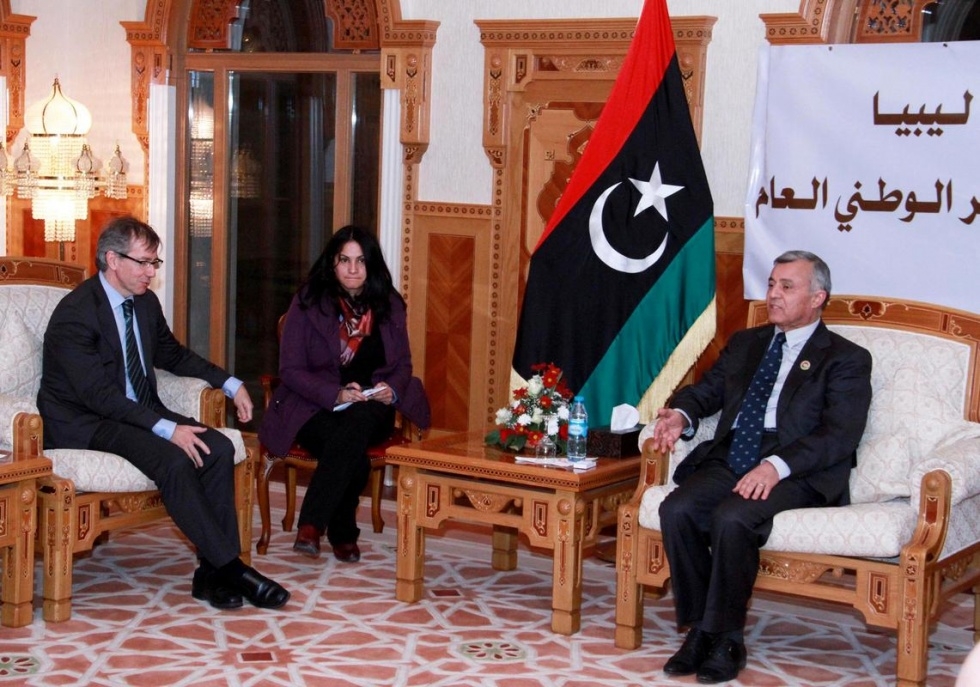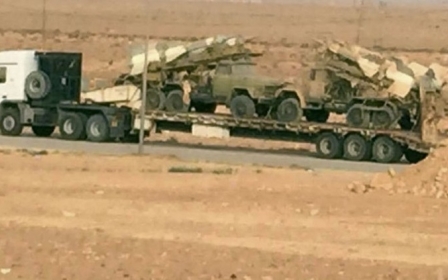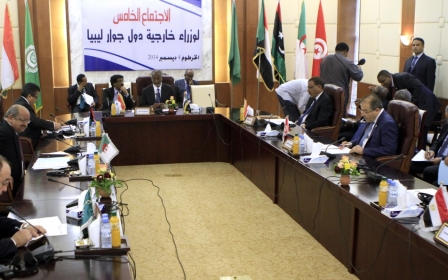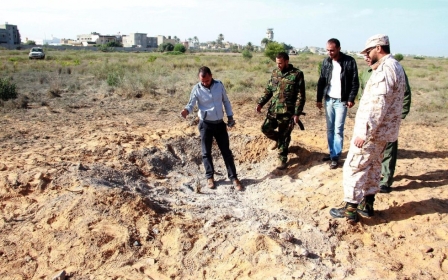ANALYSIS: UN Peace talks postponed with sides far apart

The UN dramatically postponed Libyan peace talks on Monday night, after failing to win agreement from the two rival governments to sit down together at the same table.
UN special envoy Bernadino Leon had billed Tuesday’s talks as a “last chance” for peace when he met NATO foreign ministers in Brussels last week.
But over the weekend, Libya’s two governments, one in Tobruk and one in Tripoli, each said they would attend only if key members of the other administration were excluded.
On Monday, Leon staged a last-minute visit to the capital to meet Nuri Abu Sahmein, leader of Tripoli-based general national congress, hoping to save the talks. But with both sides as far apart as ever, the UN issued a postponement.
Officially, the UN remains optimistic. “We will start dialogue at the beginning of next week in order to discuss details with the different parties,” said a statement issued on Monday night. “We are not asking anyone attending the meetings to give up their principles. The United Nations cannot impose solutions.”
But the UN has not said how it will persuade the two sides to start talking to each other.
Libya has been in a state of civil war since the summer. Following elections in June for a new parliament, the house of representatives, a group of militias in Tripoli named Libya Dawn rebelled. They claim the new parliament, which has fled to Tobruk, is dominated by sympathizers of Muammar Gaddafi, overthrown in the 2011 revolution. Instead, Libya Dawn supported a revival of the former parliament, the general national congress which now runs Tripoli.
Leon, appointed as UN envoy in the summer, has spent months trying to get the two sides to talk.
His first problem was that the UN recognises only the Tobruk parliament as legitimate. Leon’s solution was Ghadarmes 1, a series of talks in the western town of the same name. The invitees were limited to MPs from the Tobruk parliament, mixed between those attending and those boycotting in support of Libya Dawn.
This process got nowhere, despite UN Secretary General Ban Ki Moon attending one session in October. Then in November the supreme court ruled that the June elections were illegitimate, making the Tobruk parliament potentially illegitimate also.
While the UN has yet to say whether it agrees with the court ruling, Leon began a new talks initiative, Ghadarmes II, for the first time including leaders who were not part of the Tobruk parliament.
December 9 was to be the time when all sides got together, in talks to include both parliaments and, crucially, key military commanders from both sides. In the days leading up to the talks, Leon announced that he did not expect a breakthrough in the talks, merely that a dialogue process could be established.
Even that objective was dashed by statements from both governments on Sunday.
Tobruk and Tripoli both issued tough demands, each demanding exclusion from the talks for many of their opponents.
Tobruk said it would not agree to “illegal militia” commanders or “people responsible for the current crisis” attending the talks, ruling out Libya Dawn commanders and probably many congress figures. It added that for talks to take place, all sides must agree it was the legitimate government.
Tripoli meanwhile demanded that some Tobruk commanders be excludes, saying talks could not take place unless Tobruk’s government was“de-legitimized.”
Each government, in effect, said they would attend the talks only if they were recognized as the only legitimate government.
Faced with these conditions, Leon had little option but to postpone the talks, knowing that whoever he invited, at least one side, and possibly both, would boycott.
Leon’s first problem is the incompatibility of the two sides demands. Tobruk’s government, led by prime minister Abdullah al Thinni, insists that as it was created by UN-supervised elections, it must be recognised as the sole legitimate authority. Congress, which appointed Omar al Hasi as its prime minister, insists the supreme court judgement invalidates Tobruk’s authority.
The demands appear to rule out the solution that that has brought peace to wars around the world - an agreed dividing line and power sharing. Tobruk and Tripoli each insist they must control Libya, with no space for the other.
Diplomats hope that despite this incompatibility, both sides will agree at least a ceasefire.
That looks like being a tall order because, in a nutshell, one side believes it is winning the war.
When the newly elected parliament fled to Tobruk in the summer, rebel forces held all three of Libya’s principle cities. Tripoli and Misrata were under command of Libya Dawn, loyal to the former congress. Benghazi, the eastern capital, was controlled by the Ansar Al Sharia militia.
Since then, the balance of power has changed, due in large part to the Tobruk forces receiving new equipment and, crucially, strike planes. Most of Benghazi has been captured by pro-government forces from Ansar al Sharia and allied brigades.
Meanwhile, in the west, pro-Tobruk forces from Zintan and allied tribes have set up an air base, Al Watiya, south-west of the capital, with daily bombing raids on Libya Dawn positions. Zintan forces have captured the strategically important town of Kikla and their brigades, backed by air strikes, are pushing towards the Ras Ajir border crossing with Tunisia.
Libya Dawn forces are fighting back, beating off attacks on the border and at Sabratha, half way between Tripoli and the border, with reinforcements arriving this week from Misrata.
Strategically, Tobruk believes it is winning, with diplomats fearing that makes it reluctant to end the war. Even if the balance changes, as it has several times in recent months, that may in turn make Tripoli less willing to talk. Diplomats know that negotiators operate best in an environment when both sides have concluded they have reached a stalemate, and for the moment Libya’s battlefield is too dynamic for that.
For ordinary Libyans, meanwhile, the suffering goes on. The UN says more than 400,000 are now homeless, out of a six million population. The economy is in ruins, hospitals struggling, and Benghazi’s fighting has left much of the city wrecked. Oil production, almost the country’s only money-earner, is at about 700,000 barrels a day, roughly half of what it should be.
This week the Central Bank announced an alarming deficit, with annual income to the end of November around $15 billion and expenditure approximately $30 billion. For the moment, it is plugging the gap with foreign exchange reserves, but when these are depleted, Libyans, most of whom rely on state salaries or subsidies, will go without.
Time, in other words, is running out. Leon will hope that a round of shuttle diplomacy in the coming days can water-down the demands of both governments, to the point where they can at least agree to meet across a table next week. Another postponement would undermine the credibility of the mediation process. Yet for the moment the battlefield, rather than the conference table, is calling the shots.
New MEE newsletter: Jerusalem Dispatch
Sign up to get the latest insights and analysis on Israel-Palestine, alongside Turkey Unpacked and other MEE newsletters
Middle East Eye delivers independent and unrivalled coverage and analysis of the Middle East, North Africa and beyond. To learn more about republishing this content and the associated fees, please fill out this form. More about MEE can be found here.




